Nutrition and Anxiety: The Impact of Diet on Anxiety Disorder
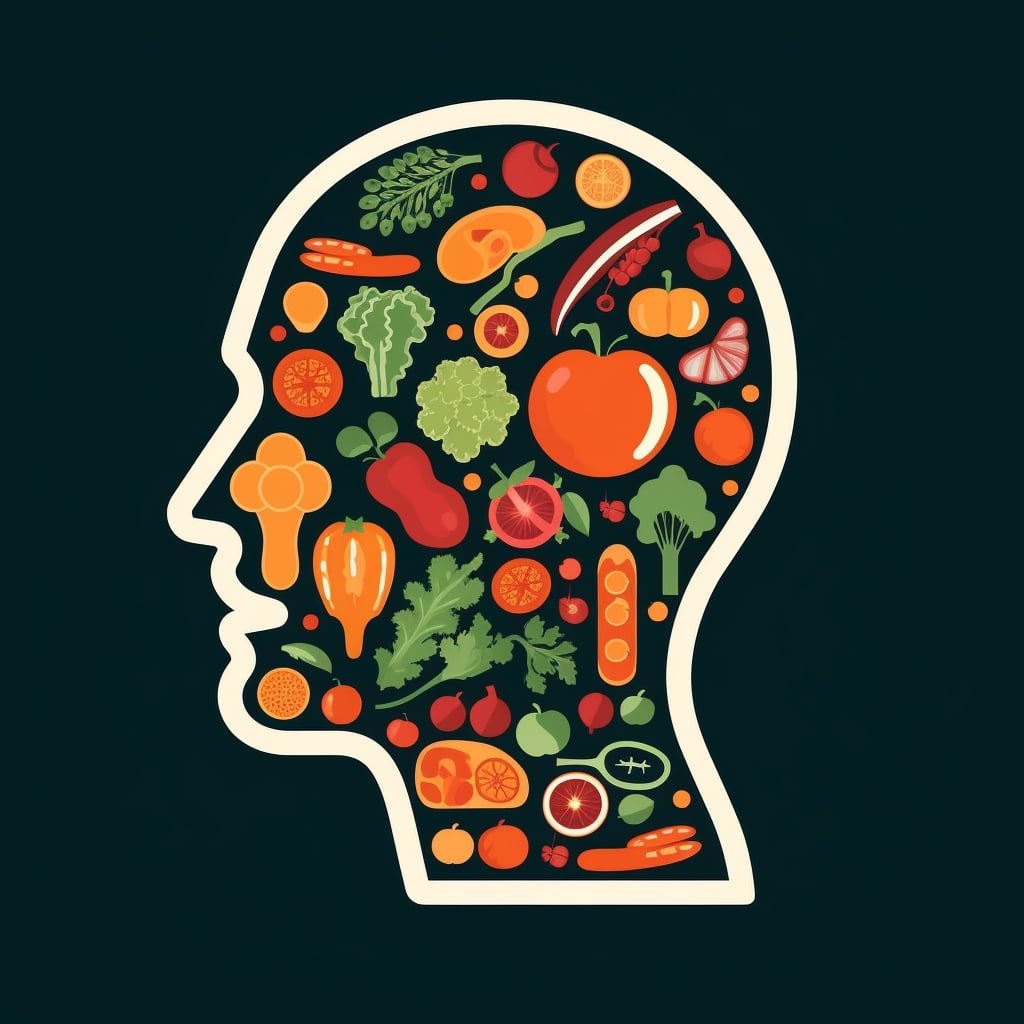
Nutrition’s impact on mental well-being is as crucial as its role in physical health. Our food provides essential nutrients that support brain function, emotions, and mood. As researchers study the connection between nutrition and mental health, they focus on the growing interest in nutrition’s role in anxiety.
Understanding the relationship between nutrition and anxiety is vital due to the rising global prevalence of anxiety disorders. About 264 million people suffer from anxiety disorders, making it a widespread concern. Exploring how our diet affects anxiety levels could lead to potential interventions and improved mental health outcomes.
This article explores the scientific evidence behind the link between nutrition and anxiety, identifying key nutrients that may alleviate or exacerbate anxiety symptoms. By understanding the role of nutrition in managing anxiety, individuals can make informed dietary choices to support their mental well-being.
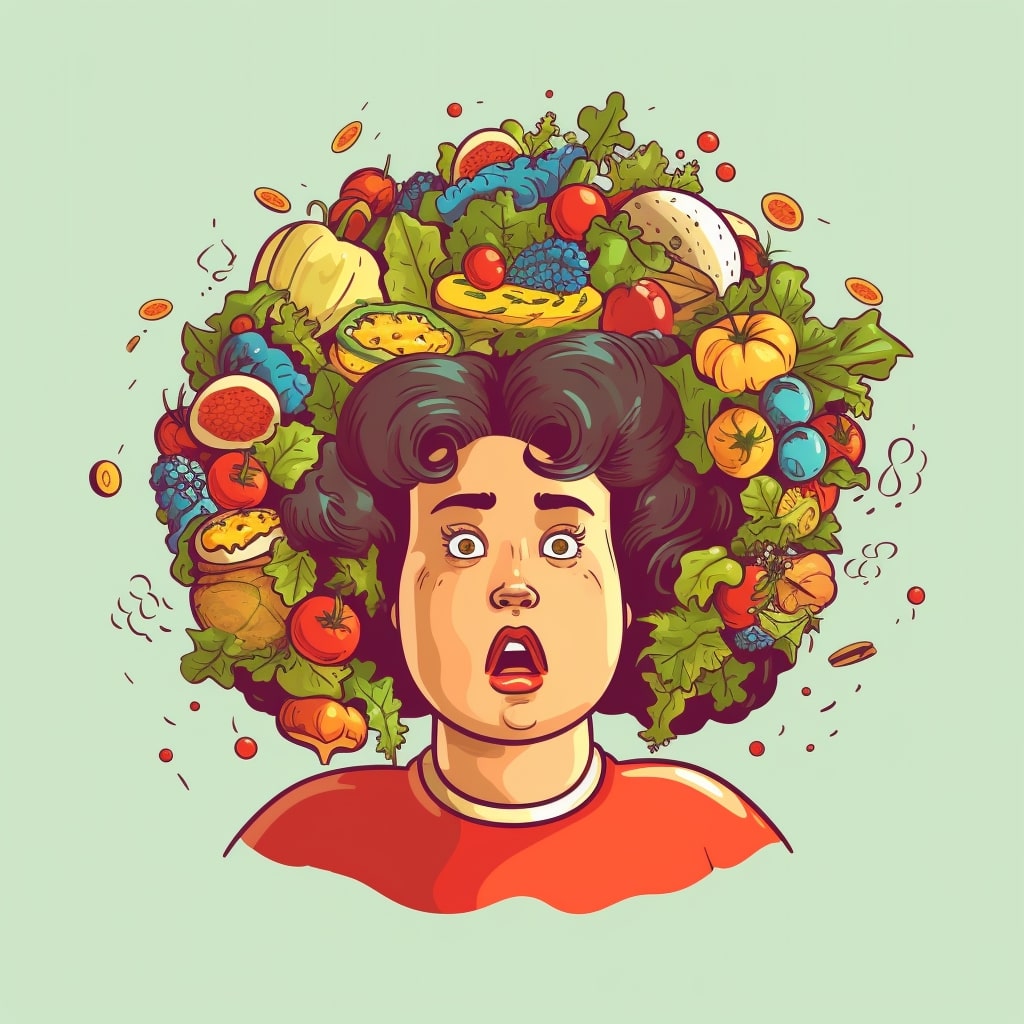
The Link between Nutrition and Anxiety: How Does Nutrition Affect Anxiety?
Anxiety is a common mental health condition affecting millions globally, characterized by excessive worry and fear. It’s the most prevalent mental health disorder in the US, impacting 40 million adults and affecting work, relationships, and quality of life.
The gut-brain axis, connecting the gut and brain, plays a significant role in mental health. The gut microbiota, influenced by nutrition, can modulate anxiety. Probiotics and prebiotics in certain foods positively affect the gut and mental well-being.
Neurotransmitters like serotonin and dopamine regulate mood and stress responses. Gut health influences serotonin production, emphasizing its importance in mental well-being. Nutrition can support optimal neurotransmitter function and potentially reduce anxiety symptoms.
Omega-3 fatty acids (DHA and EPA), B vitamins, magnesium, and antioxidants have been studied for their impact on brain health and anxiety. They play crucial roles in neurochemical processes and may help regulate anxiety-related brain circuits.
| Related Article: Separation Anxiety Disorder in Adults: Causes, Signs & Symptoms, and Treatment
Best Food for Anxiety and Depression
Here are some foods to help with depression and anxiety:
Omega-3 Fatty Acids
Omega-3 fatty acids, particularly eicosapentaenoic acid (EPA) and docosahexaenoic acid (DHA), are essential polyunsaturated fats with a well-documented impact on mental health, including anxiety.

To incorporate omega-3 fatty acids into the diet, individuals can turn to various food sources. Fatty fish, such as salmon, mackerel, and sardines, are excellent sources of EPA and DHA. These fish are readily available and offer a bioavailable form of omega-3s that can be easily utilized by the body. For those following a plant-based diet, flaxseeds and walnuts are rich in alpha-linolenic acid (ALA), a type of omega-3 that can be converted to EPA and DHA in the body, although conversion rates are generally lower.
The American Heart Association recommends consuming fatty fish at least twice a week to obtain adequate amounts of omega-3 fatty acids for overall health, including brain health.
Antioxidants
Oxidative stress occurs when there is an imbalance between the production of reactive oxygen species (ROS) and the body’s ability to neutralize them with antioxidants. ROS are unstable molecules that can damage cells, including those in the brain. Oxidative stress has been implicated in various mental health conditions, including anxiety.
Antioxidants are molecules that neutralize ROS, preventing cellular damage and protecting the body against oxidative stress. Fruits, vegetables, and herbs are rich sources of various antioxidants, such as vitamins C and E, beta-carotene, and flavonoids. Including these nutrient-dense foods in the diet can support the body’s defense against oxidative stress and potentially alleviate anxiety symptoms.

B Vitamins
B vitamins, particularly B6, B9 (folate), and B12, play essential roles in maintaining optimal brain function and emotional well-being. These vitamins are involved in various biochemical processes that influence neurotransmitter production and regulation, which in turn can impact anxiety levels. Let’s explore the specific roles of each B vitamin:
- Vitamin B6 (Pyridoxine): Vitamin B6 is involved in the synthesis of several neurotransmitters, including serotonin and gamma-aminobutyric acid (GABA). Serotonin is known as the “feel-good” neurotransmitter, while GABA has calming properties, both contributing to a sense of well-being and relaxation. A deficiency in B6 could disrupt these neurotransmitter pathways, potentially leading to increased anxiety.
- Vitamin B9 (Folate): Folate is crucial for DNA synthesis and methylation, important processes that regulate gene expression and neurotransmitter synthesis. Methylation helps convert the amino acid homocysteine into methionine, which is then used to produce S-adenosylmethionine (SAMe), a compound involved in serotonin production. Low levels of folate have been associated with higher rates of depressive and anxiety symptoms.
- Vitamin B12 (Cobalamin): Vitamin B12 is essential for nerve function and the production of myelin, which insulates and protects nerve fibers. It also plays a role in neurotransmitter synthesis and helps maintain the integrity of the nervous system. Deficiencies in B12 have been associated with mood disturbances and anxiety.

Food Sources Rich in B Vitamins
To obtain sufficient B vitamins, individuals can include a variety of foods in their diet:
- Leafy greens: Spinach, kale, and collard greens are excellent sources of folate and vitamin B6.
- Legumes: Beans, lentils, and chickpeas provide folate, vitamin B6, and other B vitamins.
- Poultry: Chicken and turkey are good sources of vitamins B6 and B12. Other sources of B vitamins include fortified cereals, whole grains, eggs, and dairy products. A well-balanced diet that incorporates these nutrient-rich foods can support brain health and potentially help reduce anxiety symptoms.
Magnesium
Magnesium is a vital mineral that plays a crucial role in various physiological processes, including muscle function, nerve transmission, and energy production. One of its most notable functions is its ability to promote relaxation and help reduce stress. Magnesium acts as a natural relaxant by regulating the activity of the parasympathetic nervous system, which is responsible for calming the body’s “fight or flight” response.
A randomized, double-blind, placebo-controlled trial published in the journal Neuropharmacology investigated the effects of magnesium supplementation on stress and anxiety in healthy adults. The study found that participants who received magnesium supplements experienced a significant reduction in subjective measures of stress and anxiety.
Moreover, magnesium is known to modulate the activity of the hypothalamic-pituitary-adrenal (HPA) axis, the body’s primary stress response system. By regulating cortisol levels (the stress hormone), magnesium helps dampen the body’s stress response and promote a sense of calmness.

Magnesium-Rich Foods
To ensure an adequate intake of magnesium, individuals can incorporate various magnesium-rich foods into their diet:
- Nuts: Almonds, cashews, and Brazil nuts are excellent sources of magnesium.
- Seeds: Pumpkin seeds, sunflower seeds, and flaxseeds provide magnesium.
- Dark Chocolate: Dark chocolate with a high cocoa content is not only a tasty treat but also a source of magnesium.
Incorporating magnesium-rich foods into one’s diet can help support overall well-being and may contribute to anxiety reduction. However, it is essential to be mindful of individual dietary needs and consult with a healthcare professional or registered dietitian if considering magnesium supplementation.
Probiotics
The gut microbiome, a vast community of trillions of microorganisms residing in our digestive tract, has garnered increasing attention for its role in various aspects of health, including mental well-being. Emerging research suggests that the gut microbiome communicates bidirectionally with the brain through the gut-brain axis, influencing emotions, mood, and behavior. Disruptions in the gut microbial balance have been linked to mental health conditions, including anxiety.
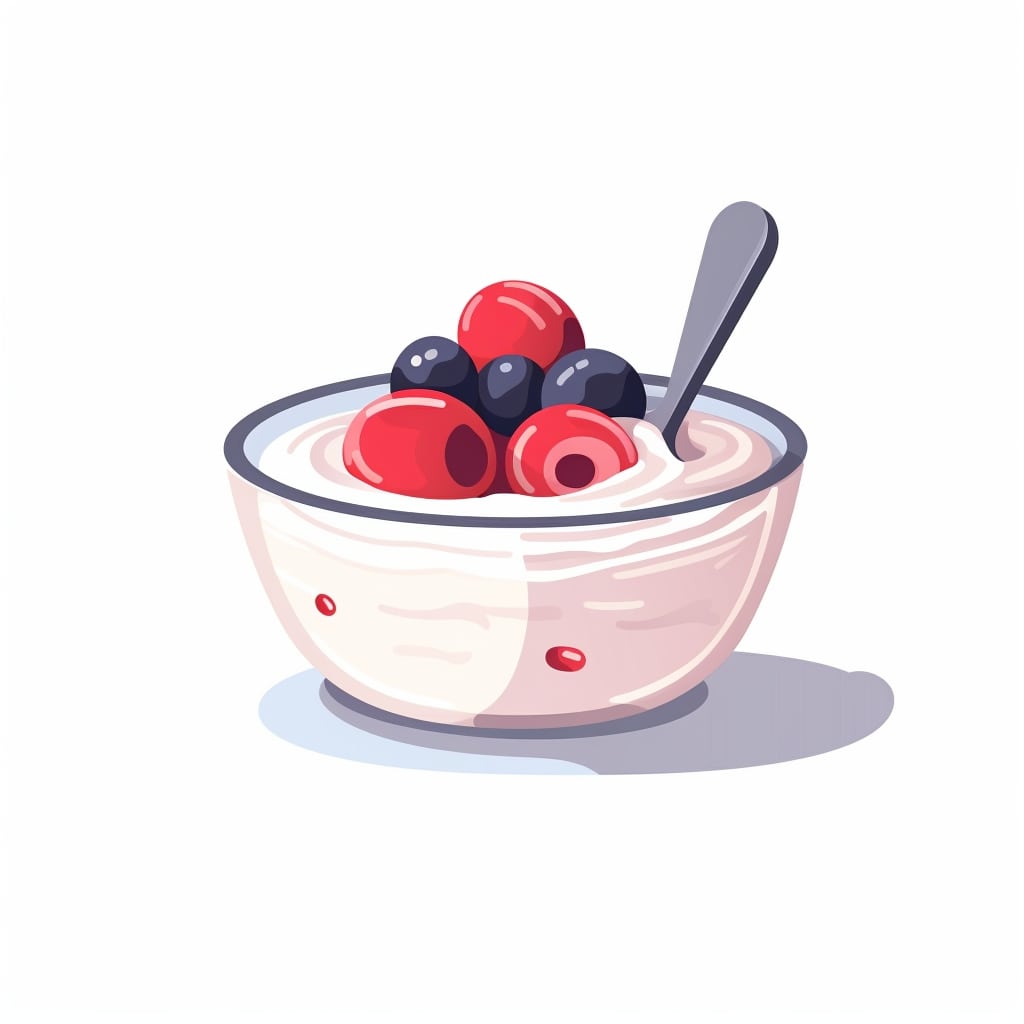
Probiotics are beneficial live microorganisms that can positively influence the gut microbiome when consumed in adequate amounts. They have been studied for their potential to support mental health, including anxiety management. Probiotics work by promoting a healthy balance of gut bacteria, which can help regulate neurotransmitter production, reduce inflammation, and improve gut barrier function. All of these factors contribute to the modulation of anxiety-related pathways.
While research on probiotics and anxiety is promising, it is essential to note that individual responses to probiotics may vary. Additionally, not all probiotic strains have been equally studied for their mental health benefits. As such, consulting with a healthcare professional before incorporating probiotics into one’s diet is advisable to ensure personalized and evidence-based recommendations.
🌱 Uncover the Nourishing Path to Inner Peace! 🌟
Delve into the fascinating world where Nutrition meets Mental Well-being.
A journey from “Nutrition and Anxiety and The Impact of Diet on Anxiety Disorder” to
“Depression and Nutrition: Foods That Can Support Mental Well-being.”
Discover the powerful connection between food and emotional health as we guide you toward a blissful state of mind.
Let’s explore how the right nourishment can be a source of strength, resilience, and tranquility. Step onto this enlightening pathway to a happier, healthier you!
Your next chapter awaits—start your soulful expedition today! 🚀
Foods That May Worsen Anxiety
Here are some foods that may worsen anxiety:
Caffeine and Stimulants
Caffeine, a central nervous system stimulant, is commonly found in coffee, tea, energy drinks, and some sodas. While moderate caffeine consumption can provide a temporary boost in alertness and mood, excessive intake can trigger or exacerbate anxiety symptoms. Caffeine acts by blocking adenosine receptors in the brain, which can lead to increased neural activity and a sense of heightened alertness. However, for individuals prone to anxiety, this heightened arousal can manifest as jitteriness, restlessness, and an increase in anxiety levels.
A study published in the journal Psychosomatic Medicine investigated the relationship between caffeine consumption and anxiety in a community sample. The findings revealed that higher caffeine intake was associated with increased anxiety symptoms.

Also Might Be Useful…
Alternative Beverage Options for Anxiety Management
For individuals looking to reduce their caffeine intake to manage anxiety, several alternative beverage options can provide relaxation and comfort without the stimulating effects of caffeine:

- Herbal Teas: Herbal teas such as chamomile, peppermint, and valerian root have calming properties and are caffeine-free. Chamomile, in particular, has been studied for its potential in reducing anxiety symptoms.
- Decaffeinated Coffee and Tea: For those who enjoy the taste of coffee and tea but wish to reduce caffeine intake, decaffeinated versions are available. They offer a similar sensory experience without the anxiety-triggering effects of caffeine.
- Warm Milk: Warm milk has long been associated with promoting relaxation and sleep. It contains tryptophan, an amino acid precursor to serotonin, which can support a sense of calmness.
- Infused Water: Infusing water with fruits, herbs, or cucumbers can add a refreshing flavor without any stimulants. Staying hydrated is crucial for overall well-being, including mental health.
By choosing caffeine-free or low-caffeine beverage options, individuals with anxiety can better manage their symptoms and promote a sense of calm and relaxation in their daily lives.
Sugar and Refined Carbohydrates
While sugar is a common ingredient in many foods and beverages, excessive consumption of sugar and refined carbohydrates may have negative effects on mental health, including anxiety. When we consume sugary foods, our blood sugar levels spike rapidly, leading to a surge in energy and mood. However, this spike is often followed by a crash as insulin is released to lower blood sugar levels. This fluctuation in blood sugar can trigger feelings of irritability, fatigue, and anxiety.
A study published in the journal Scientific Reports investigated the association between dietary sugar intake and common mental disorders, including anxiety. The study found that higher sugar intake was associated with an increased risk of developing anxiety disorders.

Moreover, excessive sugar consumption has been linked to chronic inflammation and changes in gut microbiota composition, which can also influence mood and anxiety levels.
Balanced Diet to Stabilize Blood Sugar Levels
To support mental health and manage anxiety, adopting a balanced diet that helps stabilize blood sugar levels is crucial. Here are some dietary strategies to consider:
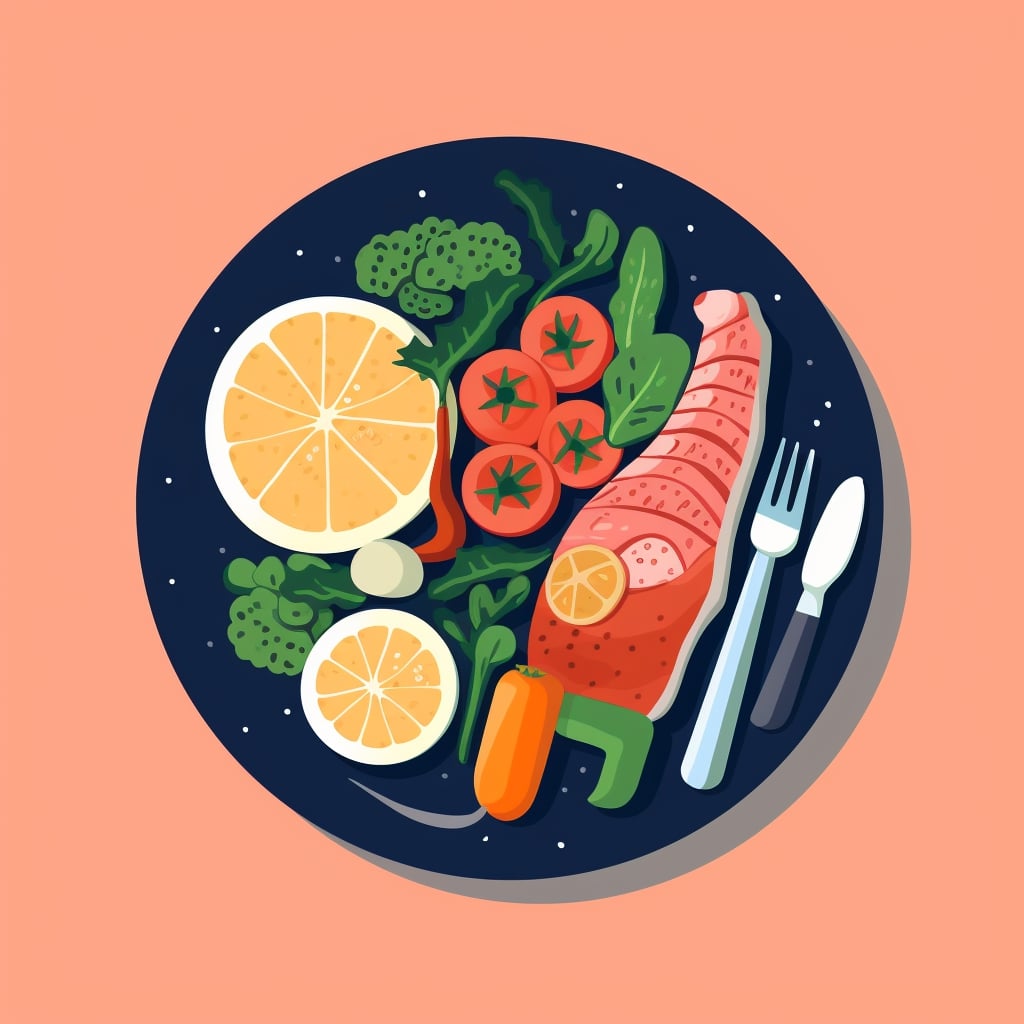
- Whole Foods: Choose whole, unprocessed foods rich in fiber, such as fruits, vegetables, whole grains, and legumes. These foods have a slower impact on blood sugar levels and provide a steady release of energy.
- Healthy Fats: Incorporate sources of healthy fats, such as avocados, nuts, seeds, and olive oil, into your diet. Healthy fats can slow down the absorption of carbohydrates, preventing rapid spikes in blood sugar.
- Protein-Rich Foods: Include lean sources of protein, like poultry, fish, tofu, and beans, in your meals. Protein helps regulate blood sugar levels and promotes satiety.
- Limit Sugary and Refined Carbohydrates: Minimize the consumption of sugary beverages, sweets, and processed foods high in added sugars and refined carbohydrates.
By prioritizing a balanced diet and making conscious food choices, individuals can help stabilize blood sugar levels, support overall well-being, and potentially alleviate anxiety symptoms.
Processed and Fast Foods
Processed and fast foods, characterized by their high levels of refined sugars, unhealthy fats, and artificial additives, can have detrimental effects on both physical and mental health, including anxiety. These foods are often low in essential nutrients and high in empty calories, contributing to nutritional deficiencies and imbalances that can impact mood and overall mental well-being.
A systematic review and meta-analysis published in the journal Nutrition Journal examined the relationship between fast food consumption and mental health outcomes. The review found that a higher intake of fast food was associated with an increased risk of depression.
Additionally, the excessive consumption of processed and fast foods has been linked to chronic inflammation and oxidative stress, both of which can contribute to the development or exacerbation of anxiety.
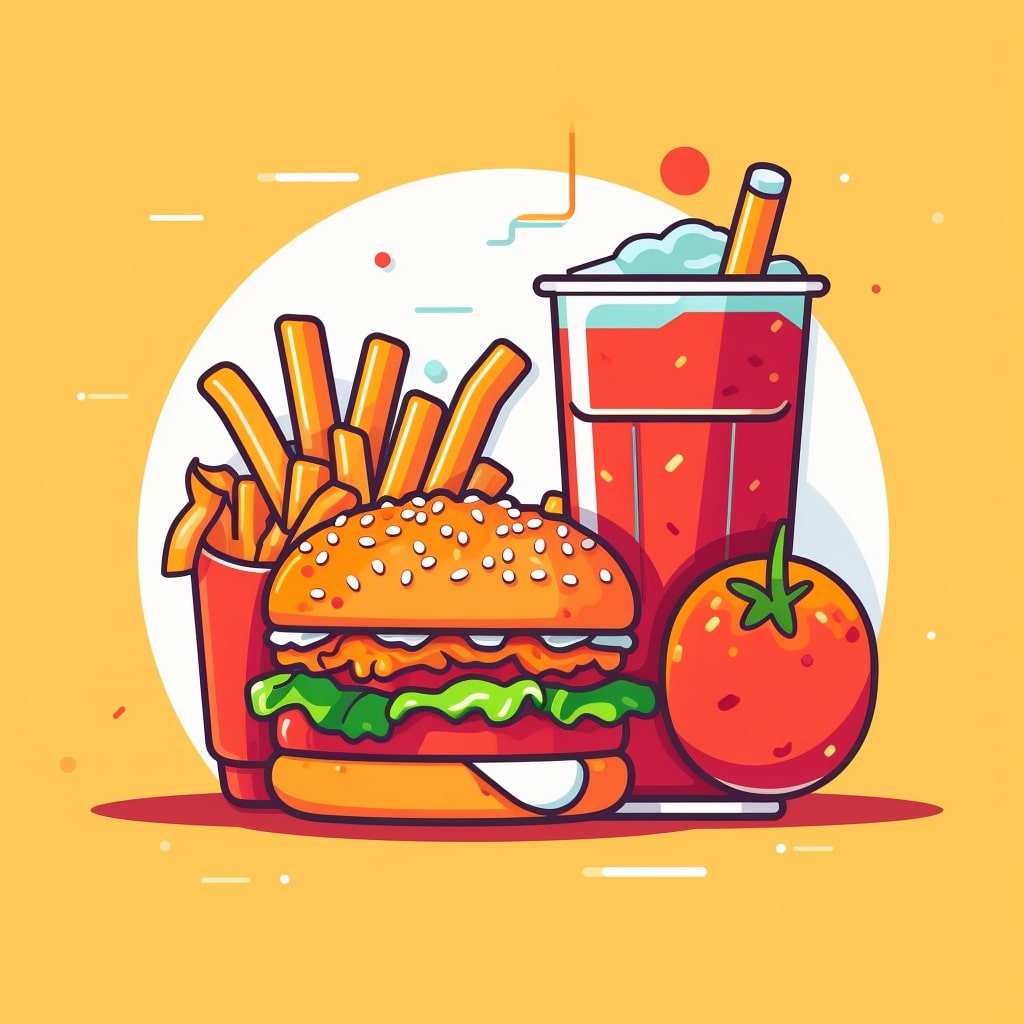
| Suggestion: Every Kind of Anxiety Eating Disorder and How to Stop It
Whole-Foods-Based Diet for Anxiety Relief
Adopting a whole-foods-based diet, rich in nutrient-dense foods and minimally processed ingredients can have positive effects on mental health, including anxiety relief. Whole foods provide essential vitamins, minerals, antioxidants, and phytochemicals that support brain function and mood regulation. They also promote a healthier gut microbiome, which has been associated with improved mental well-being.
By choosing nutrient-rich whole foods over processed and fast foods, individuals can take an active step towards supporting their mental well-being and potentially experiencing relief from anxiety symptoms.
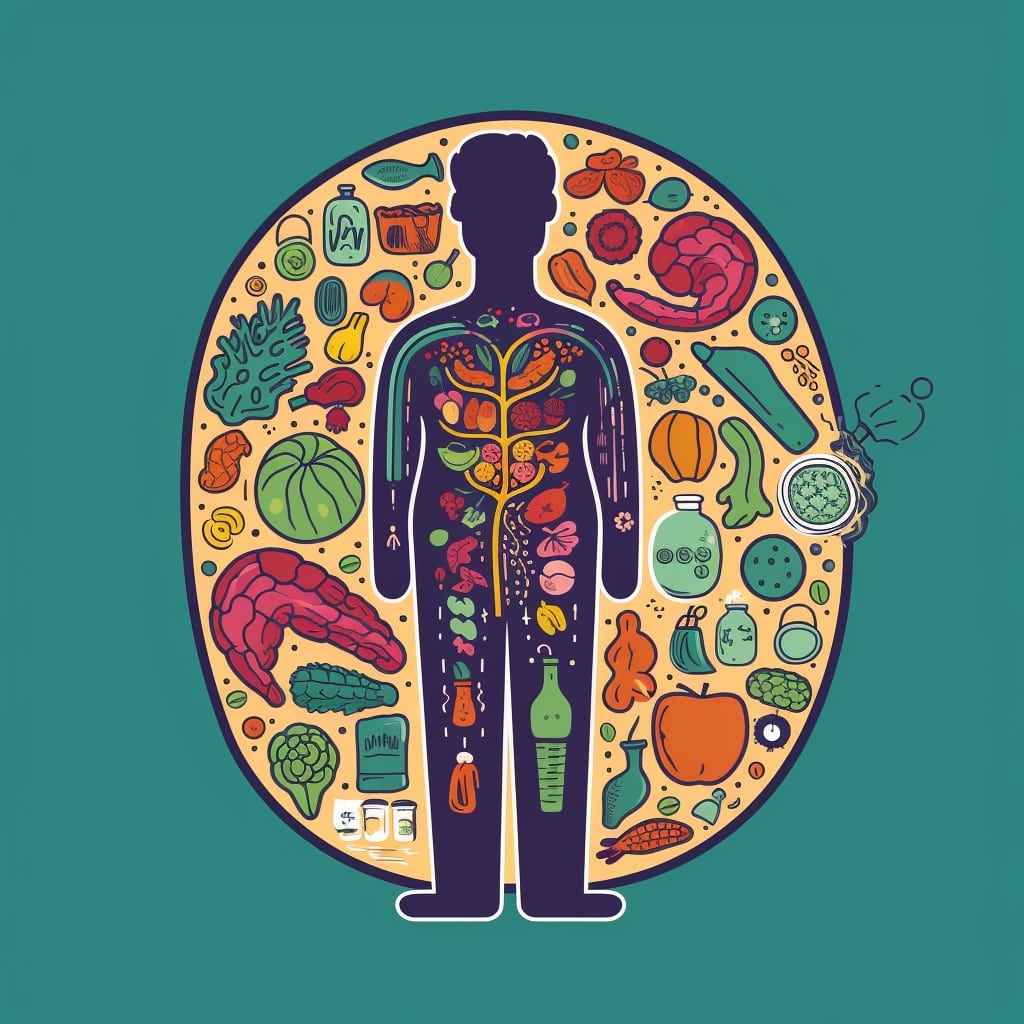
The Role of Gut Health in Anxiety
The gut-brain axis is a complex bidirectional communication system that links the central nervous system (the brain) and the enteric nervous system (the gut). This intricate connection allows constant signaling between the gut and the brain, influencing various physiological and psychological processes, including mood and anxiety regulation. The gut is often referred to as the “second brain” due to its extensive neural network and ability to produce neurotransmitters, including serotonin and gamma-aminobutyric acid (GABA), which play key roles in emotional well-being.
A review published in the journal Frontiers in Cellular Neuroscience discusses the significance of the gut-brain axis in various mental health conditions, including anxiety. The review emphasizes the role of gut microbiota, immune system activation, and neurotransmitter production in the bidirectional communication between the gut and the brain.
Improving Gut Health through Dietary Choices
Diet plays a crucial role in shaping gut microbiota composition and overall gut health. Making specific dietary choices can help support a diverse and healthy gut microbiome, which, in turn, may positively influence anxiety symptoms. Here are some dietary strategies to improve gut health:
- Probiotics and Fermented Foods: Probiotics are beneficial live bacteria that can be found in fermented foods like yogurt, kefir, sauerkraut, kimchi, and miso. Incorporating these probiotic-rich foods into the diet can help introduce beneficial bacteria to the gut, supporting a balanced microbiome.
- High-Fiber Foods: Consuming a diet rich in fruits, vegetables, whole grains, and legumes provides ample fiber, which helps maintain a healthy gut environment. Fiber supports regular bowel movements and fosters a diverse gut microbiome.
- Limiting Processed Foods: Minimizing the intake of processed and fast foods, which are often low in nutrients and high in unhealthy fats and sugars, can help reduce gut inflammation and support a healthier gut microbiome.
By adopting a gut-friendly diet and promoting gut health, individuals can contribute to better mental well-being and potentially experience a reduction in anxiety symptoms.
| Read More: Anxiety at College: Strategies to Handle Social Anxiety for Students

Personalized Nutrition for Anxiety
When it comes to addressing anxiety through nutrition, it is essential to recognize that each individual has unique dietary requirements and responses to different foods. Factors such as genetics, metabolism, gut health, medical conditions, and lifestyle play a significant role in determining how certain nutrients and dietary patterns impact mental health. What works well for one person may not have the same effect on another.
A study published in the journal Nutrients investigated the role of personalized nutrition in mental health and well-being. The study emphasizes the importance of considering individual differences in designing dietary interventions for mental health conditions, including anxiety.
Given the complexity of the relationship between nutrition and anxiety, seeking guidance from a qualified professional, such as a registered dietitian, is highly recommended. A registered dietitian is a trained expert in nutrition with specialized knowledge in designing personalized nutrition plans based on individual health goals and conditions.
| Read more: PMS anxiety ; How Anxiety Can Affect PMS?
HealWiser’s Last Piece of Advice
As we conclude this article, we urge readers to recognize the powerful impact of nutrition on mental health, particularly when it comes to managing anxiety. Taking a proactive approach to nourishing our bodies with wholesome, nutrient-dense foods can be a fundamental step toward enhancing our emotional resilience and overall well-being.
However, it is crucial to remember that individual responses to dietary changes may vary, and seeking personalized advice is essential. We encourage readers to consult with a registered dietitian or healthcare professional to develop a customized nutrition plan tailored to their specific needs and health goals.
Share your experience with HealWiser and others in the comments section below this post.





